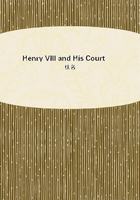
第64章 GAMMER GUETON'S NEEDLE.(4)
"Do not turn me away, sir!" moaned Hodge; "do not dismiss me from your service because at last I have for once given the old hag a good bruising. She has deserved it a long time, and an angel himself must at last lose patience with her.""I turn you out of my service!" exclaimed John Heywood, as he wiped his eyes, wet with laughing. "No, Hodge, you are a real jewel, a mine of fun and merriment; and you two have, without knowing it, furnished me with the choicest materials for a piece which, by the king's order, I have to write within six days. I owe you, then, many thanks, and will show my gratitude forthwith. Listen well to me, my amorous and tender pair of turtle-doves, and mark what I have to say to you. One cannot always tell the wolf by his hide, for he sometimes put on a sheep's skin; and so, too, a man cannot always be recognized by his voice, for he sometimes borrows that of his neighbor. Thus, for example, I know a certain John Heywood, who can mimic exactly the voice of a certain little miss named Tib, and who knows how to warble as she herself: 'Hodge, my dear Hodge!'" And he repeated to them exactly, and with the same tone and expression, the words that the voice had previously cried.
"Ah, it was you, sir?" cried Hodge, with a broad grin--"that Tib in the court there, that Tib about whom we have been pummelling each other?""I was Tib, Hodge--I who was present during the whole of your quarrel, and found it hugely comical to send Tib's voice thundering into the midst of our lovers' quarrel, like a cannon-stroke! Ah, ha!
Hodge, that was a fine bomb-shell, was it not? And as I said 'Hodge, my dear Hodge,' you tumbled about like a kernel of corn which a dung-beetle blows with his breath. No, no, my worthy and virtuous Gammer Gurton, it was not Tib who called the handsome Hodge, and more than that, I saw Tib, as your contest began, go out at the courtyard gate.""It was not Tib!" exclaimed Gammer Gurton, much moved, and happy as love could make her. "It was not Tib, and she was not in the court at all, and Hodge could not then go down to her, while I went to the shopkeeper's to buy needles. Oh, Hodge, Hodge, will you forgive me for this; will you forget the hard words which I spoke in the fury of my anguish, and can you love me again?""I will try," said Hodge, gravely; "and without doubt I shall succeed, provided you go to-day forthwith to the justice, and make your will.""I will make my will, and to-morrow we will go to the priest; shall it not be so, my angel?""Yes, we go to the priest to-morrow!" growled Hodge, as with a frightful grimace he scratched himself behind the ears.
"And now come, my angel, and give me a kiss of reconciliation!" She spread her arms out, and when Houge did not come to her, but remained immovable, and steadfast in his position, she went to Hodge and pressed him tenderly to her heart.
Suddenly she uttered a shriek, and let go of Hodge, She had felt a terrible pain in her breast. It seemed as though a small dagger had pierced her bosom.
And there it was, the lost needle, and Hodge then was innocent and pure as the early dawn.
He had not mischievously purloined the needle, so that Gammer Gurton would be compelled to leave her house in order to fetch some new needles from the shopkeeper's; he had not intended to go to Tib, for Tib was not in the court, but had gone out.
"Oh Hodge, Hodge, good Hodge, you innocent dove, will you forgive me?""Come to the justice of the peace, Gammer Gurton, and I forgive you!"They sank tenderly into each other's arms, wholly forgetful of their master, who still stood near them, and looked on, laughing and nodding his head.
"Now, then, I have found the finest and most splendid materials for my piece," said John Heywood, as he left the loving pair and betook himself to his own room. "Gammer Gurton has saved me, and King Henry will not have the satisfaction of seeing me whipped by those most virtuous and most lovely ladies of his court. To work, then, straightway to work!"He seated himself at his writing-desk, and seized pen and paper.
"But how!" asked he, suddenly pausing. "That is certainly a rich subject for a composition; but I can never in the world get an interlude out of it! What shall I do with it? Abandon this subject altogether, and again jeer at the monks and ridicule the nuns? That is antiquated and worn out! I will write something new, something wholly new, and something which will make the king so merry, that he will not sign a death-warrant for a whole day. Yes, yes, a merry play shall it be, and then I will call it boldly and fearlessly a comedy!"He seized his pen and wrote: "Gammer Gurton's Needle, a right pithy, pleasant, and merry comedy."And thus originated the first English comedy, by John Heywood, fool to King Henry the Eighth. [Footnote: This comedy was first printed in the year 1661, but it was represented at Christ College fully a hundred years previously. Who was the author of it is not known with certainty; but it is possible that the writer of it was John Heywood, the epigrammatist and court-jester.--See Dramaturgic oder Theorie und Geschichte der dramatischen Kunst, von Theodore Mundt, vol i, p. 809. Flogel's Geschicbte der Hofnarren, p. 399.]